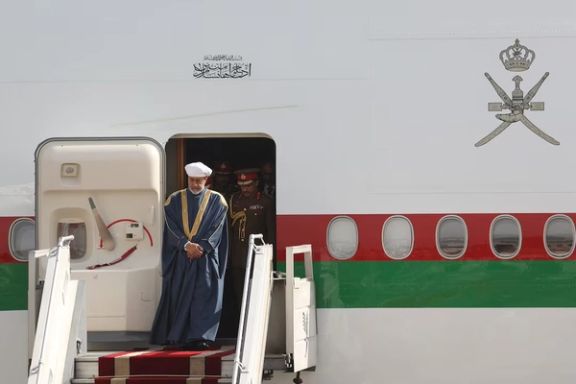Iran, Oman aim to boost trade

Iran and Oman have taken significant steps to boost bilateral trade, including resolving key banking issues and eliminating trade tariffs, the head of the Iran-Oman Joint Chamber of Commerce said on Sunday.

Iran and Oman have taken significant steps to boost bilateral trade, including resolving key banking issues and eliminating trade tariffs, the head of the Iran-Oman Joint Chamber of Commerce said on Sunday.
In an interview with state-affiliated ILNA, Jamal Razeghi Jahromi said that economic stakeholders can now open accounts for both personal and corporate purposes, adding that the changes aim to unlock the full potential of the two nations' ties and reach a target of $20 billion in annual trade.
“The main challenge Iranian investors faced in Oman was the inability to open bank accounts there. Part of these issues has been resolved, and the rest are under review," he said.
Iran is under tough US banking sanctions and on the blacklist of international watchdog, the Financial Action Task Force, FATF. If Iranian companies open bank accounts in Oman, it can help them maintain business ties with other countries. However, many of these companies are government owned entities or controlled by Iran's military.
Razeghi added that Iran and Oman have had a historically strong political relationship over the past 70 years, but trade has not kept pace.
Despite annual trade growth between 42% and 60% in the last three years, the initial trade volume was low, preventing the achievement of the targeted $5 billion in trade for the current Iranian year, which ends on March 20. He projects trade to reach $3-$3.5 billion by the year's end.
"The value of trade between Iran and Oman should reach at least $20 billion per year, and if this figure is not achieved, the friendly political relations between the two countries will not have any achievements for either side," Razeghi said.
To address this, a joint committee has been established to identify and resolve obstacles hindering trade growth, he added.
“Trade tariffs were one of the obstacles hindering trade between the two countries. This obstacle was resolved thanks to the new agreement that can effectively reduce trade tariffs to zero when implemented,” he said, referring to a deal signed during a recent visit by Iran's Minister of Industry, Mines and Trade Mohammad Atabak to Muscat.
At the 21st Joint Cooperation Meeting in Muscat last week, Atabak announced the tariff agreement, saying, “The elimination of tariffs between Iran and Oman marks an important step in fostering economic cooperation, and the implementation will begin next week.”
Measures to streamline logistics were also discussed during the minister’s trip to Muscat. A major challenge in Iran-Oman trade has been the lack of a direct and regular shipping line.
Oman has now agreed to subsidize 50% of the costs for such a line for six months to a year, with Iran's Trade Promotion Organization covering the remainder.
While this subsidy is crucial to address underutilized shipping capacity, Razeghi stressed the need for increased trade volume to make the shipping line economically viable in the long term.
Razeghi also talked about a two-year-old initiative encouraging Iranian manufacturers to complete the final 30% of their production chain in Oman.
This strategy potentially allows them to leverage Oman's existing zero-tariff trade agreements with 16 other countries, including the United States. It will also allow Iranian products manufactured in Oman to enter international markets tariff-free.
Oman attracted approximately $140 billion in foreign investment last year, demonstrating its potential as a regional economic hub, Razeghi said, noting that while cooperation opportunities exist across various industries, overcoming sanctions and addressing Iran's non-membership in the Financial Action Task Force (FATF) remain crucial for realizing the full potential of the bilateral economic relationship.
Oman's potential role as mediator
Beyond trade, Oman continues to play a vital role as a mediator between Tehran and Washington.
Last month, the Iraqi newspaper Baghdad Alyoum reported that Iran received a message from US President Donald Trump, delivered through Oman, proposing high-level talks on issues including the nuclear program, according to a source close to Iranian President Masoud Pezeshkian’s administration.
Additionally, during Joe Biden's administration, the Iranian mission to the United Nations confirmed that indirect contact between the US and Iran through Oman had been an ongoing process. The administration also authorized Iraq to transfer $10 billion in restricted Iranian funds to Oman.